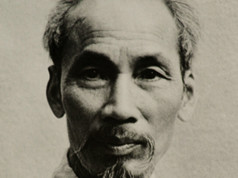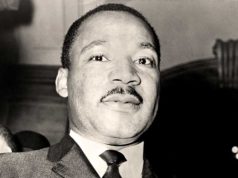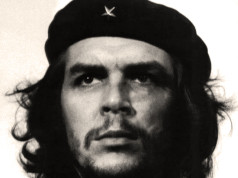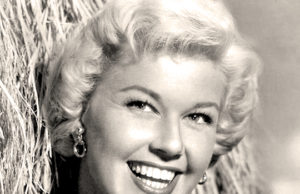Wikimedia Commons / CC-BY-SA-3.0 / GFDL
John F. Kennedy
(U.S. President)
29 May 1917 – 22 November 1963 (Aged 46)
Kennedy, commonly known as JFK, was the 35th President of the United States of America.
He famously presided over the infamous Bay of Pigs Invasion of Cuba and the Cuban Missile Crisis.
The crisis is seen as the closest the world has ever come to a nuclear war. In the wake of easing tensions, he helped broker the Nuclear-Test-Ban Treaty.
Prior to becoming president, Kennedy’s book, ‘Profiles in Courage’, won him the Pulitzer Prize for Biography in 1957.
He married Jacqueline Bouvier, Jackie, who became known as a style icon and for her restoration of the White House.
During his presidency, Kennedy gave the famous ‘Ich bin ein Berliner’ speech in front of a million people in West Berlin. He was also the first foreign leader to address parliament in his ancestral home of Ireland.
Kennedy was initially slow to embrace the civil rights movement, however, his activism grew, and, in his final weeks as president, he sent the ultimately historic civil rights bill to Congress.
Kennedy’s assassination in Dallas, Texas, is one of the most famous moments of the 20th century.
Lee Harvey Oswald was quickly charged with his murder, but countless conspiracy theories about the assassination continue to this day.
In the tense atmosphere of the 1960s, Kennedy had many enemies, however, his average approval ratings and subsequent historical poll ratings are among the highest of any president in history.
Hugh O’Flaherty
(Monsignor/Catholic Priest)
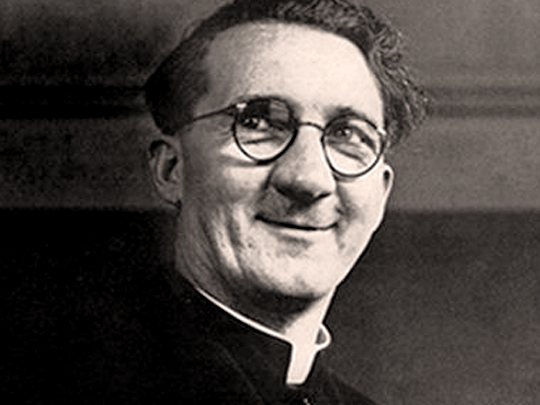
28 February 1898 – 30 October 1963 (Aged 65)
O’Flaherty was an Irish Catholic priest and a senior official of the Roman Curia, who became a heroic and influential resistance figure in Nazi-occupied Rome.
During World War II, the monsignor was responsible for saving 6,500 Allied soldiers and Jews. His ability to evade the traps set by the German Gestapo earned O’Flaherty the nickname “The Scarlet Pimpernel of the Vatican”.
Born in Cork, but growing up in Killarney, County Kerry, O’Flaherty was ordained in Rome in 1925. He went on to serve as a Vatican diplomat in Egypt, Haiti, Dominican Republic, and Czechoslovakia, before being given the title of monsignor in 1934.
During World War II, O’Flaherty toured prisoner of war camps in Italy and tried to find out about prisoners who had been reported missing in action, contacting families through Radio Vatican if finding them alive.
From 1942, O’Flaherty and British Major Sam Derry, a POW escapee, coordinated the placement of over 6,500 Allied soldiers and Jews into hiding through a secret network of priests, nuns, and laypeople around Rome.
Rome’s German occupiers eventually discovered that he was the leader of the network, but SS attempts to assassinate him failed.
O’Flaherty could not be arrested inside the Vatican, and when outside the Vatican, he wore various disguises to evade capture.
The head of the SS and Gestapo in Rome ordered a white line to be painted across the opening of St. Peter’s Square, stating that O’Flaherty would be killed if he crossed it. By the time of Rome’s liberation, O’Flaherty helped save people from over 20 countries.
In recognition of his extraordinary work, Monsignor O’Flaherty received numerous awards, including the US Medal of Freedom, as well as honors from the UK, Canada, and Australia. He also refused to use the lifetime pension that Italy had given him.
In 1960, O’Flaherty suffered a stroke and returned to Ireland. He died in his sister’s home, where he had lived, in Cahersiveen, Kerry, at the age of 65.
A monument in Killarney and a grove of trees in Killarney National Park are dedicated to O’Flaherty.
Robert Frost
(Poet)
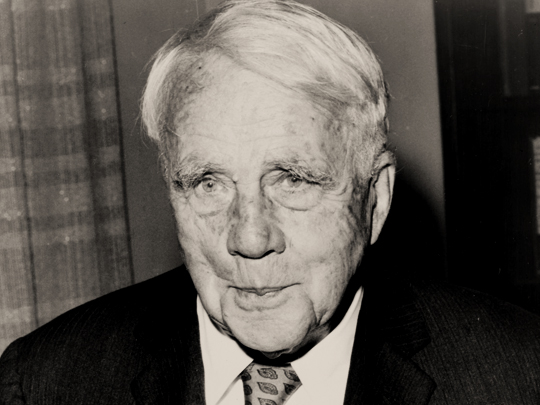
26 March 1874 – 29 January 1963 (Aged 88)
Frost was an American poet, widely recognized as one of the most influential and popular poets of the 20th century.
During his life, Frost had the distinction of winning four Pulitzer Prizes for Poetry, as well as the Congressional Gold Medal in 1960 in recognition for his life’s work.
Frost died from complications after prostate surgery at the age of 88.
C.S. Lewis
(Author)

29 November 1898 – 22 November 1963 (Aged 64)
Lewis was a renowned British author best known for his fantasy series, the ‘Chronicles of Narnia’, which has been adapted into numerous films in the early 21st century.
During his life, Lewis was also known as a Christian apologist, putting forth philosophical arguments in many books supporting Christianity.
He died from renal failure just shy of his 65th birthday.
Aldous Huxley
(Author)

26 July 1894 – 22 November 1963 (Aged 69)
Huxley was a prolific British writer and intellectual.
He is most famous for his 1932 novel ‘A Brave New World’, which is widely recognized as one of the most influential and acclaimed works of the 20th century.
For the second half of his life, Huxley lived and worked in Los Angeles where he died from cancer at the age of 69.
Huxley received 7 nominations for the Nobel Prize in Literature during his life.
Édith Piaf
(Singer)
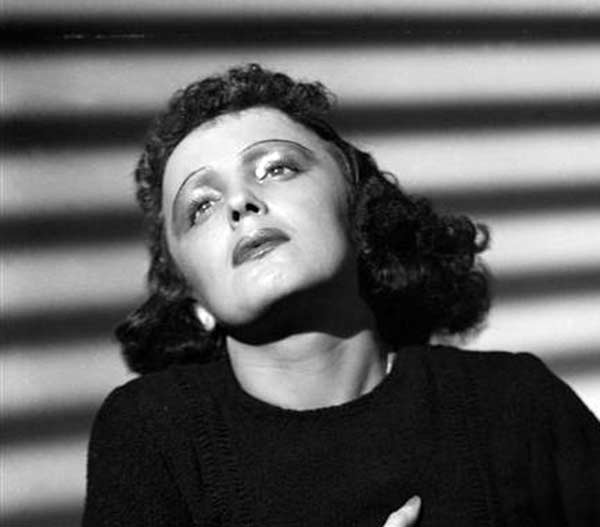
19 December 1915 – 10 October 1963 (Aged 47)
Piaf world-renowned French singer, best known for her songs, ‘Non, je ne regrette rien’ and ‘La Vie en Rose’.
Her singing style and performances were regarded among the world’s best during the 20th century.
In her early years, Piaf had a troubled life, being separated young from first, her mother, and then from her father while in her teens.
At only age 17, she gave birth to a daughter who died at the age of 2. Her singing career took off after being discovered in 1935.
She was hugely popular during World War II, singing to German soldiers, however, she is thought to have worked with French Resistance to help Jews escape Nazi oppression.
Piaf died from liver failure at the age of 47, having suffered from alcohol and morphine addiction during her life.
Many books and films have documented her life, most notably the 2007 film, ‘La Vie en Rose’.
W.E.B. Du Bois
(Civil Rights Activist)
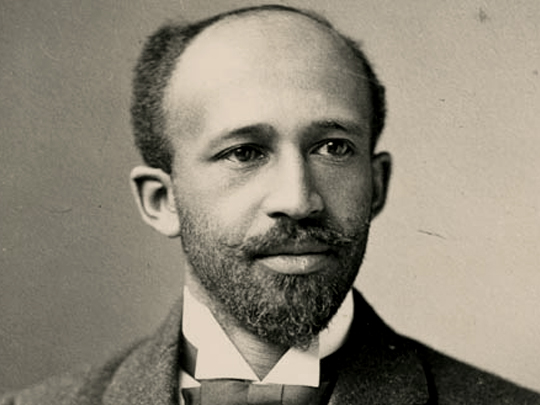
23 February 1868 – 27 August 1963 (Aged 95)
Du Bois was one of the most influential American civil rights activists of the 20th century.
He was a co-founder of the NAACP (National Association for the Advancement of Colored People) in 1909.
During his life he came to national attention through his role in the Niagara Movement, wanting equal rights for African-Americans.
He was a strong proponent of Pan-Africanism, wanting African countries to escape colonialism.
He was a renowned speaker and writer throughout his life.
A year after his death, the Civil Rights Act passed by President Lyndon B. Johnson contained much of what Du Bois had spent his life fighting for.
Sylvia Plath
(Poet)
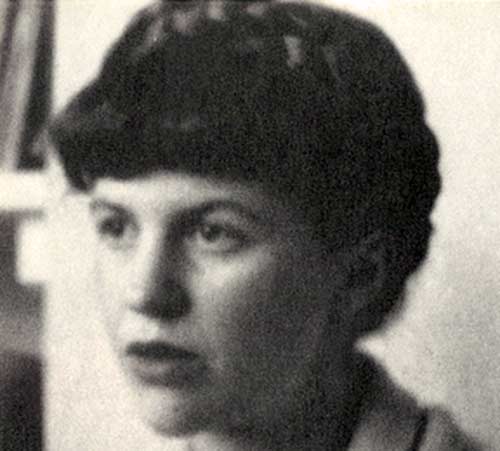
27 October 1932 – 11 February 1963 (Aged 30)
Plath was an American poet who became the first person to be posthumously awarded a Pulitzer Prize in 1982.
Among Plath’s best-known works are her semi-autobiographical novel ‘The Bell Jar’, and her two collections of poetry, ‘Ariel’ and ‘The Colossus and Other Poems’.
Plath spent most of her adult life and clinically depressed, ultimately committing suicide at the young age of 30.



